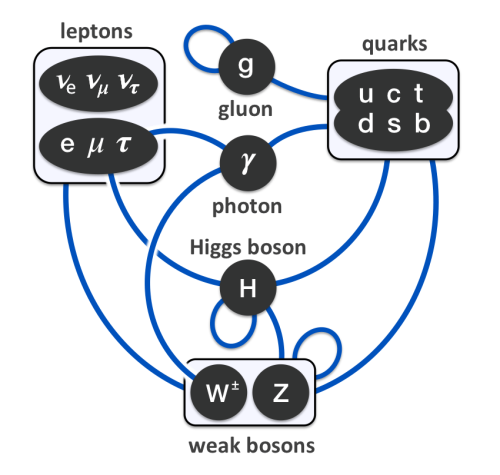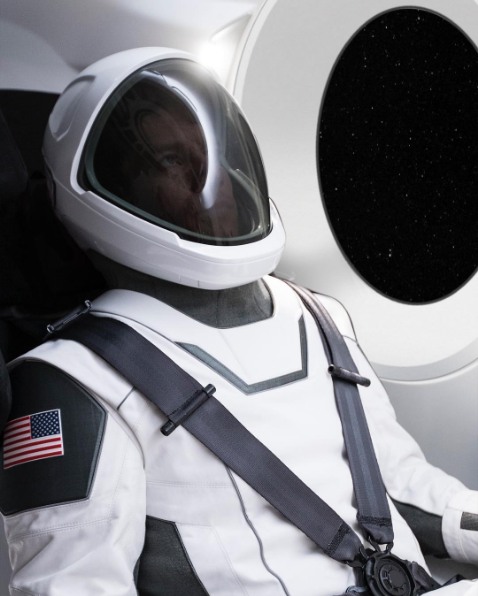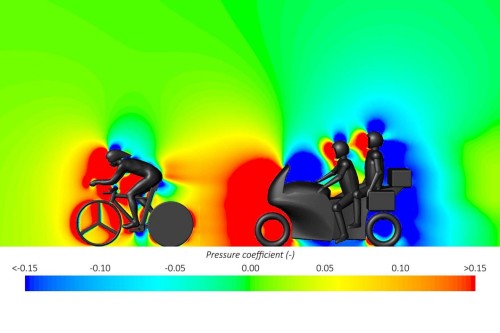Tag archives: physics and sport
Great wrong theories, new spin on golf, physics photo competition

The Standard Model: wrong, but wonderfully wrong (Courtesy: Eric Drexler)
By Hamish Johnston
What is the greatest wrong theory in physics? Physicist Chad Orzel asks that question in his latest blog for Forbes and by wrong he does not mean incorrect, but rather incomplete. He makes the argument for the Standard Model, which he says has been wrong for a very long time – but continues to be phenomenally successful.
View all posts by this author | View this author's profile
Spacesuit of the future, another ancient Pythagoras, Disney’s football analysis

The stuff of movies: new SpaceX suit could be in a film (Courtesy: SpaceX)
By Sarah Tesh and Michael Banks
Astronauts on board the SpaceX Dragon Capsule will look like they’ve stepped out of a sci-fi film. This week, Elon Musk revealed his company’s futuristic space attire on Instagram. The suits are aesthetically very different to the bulky gear NASA astronauts currently wear, the Extravehicular Mobility Unit (EMU). They are even sleeker than NASA’s next generation Z-2 suit, which was previewed in 2015. The SpaceX garb are apparently also easier to walk in and more practical for everyday use. While not quite at the tech standard of fiction, the SpaceX suits definitely look the part.
View all posts by this author | View this author's profile
Cassini’s emotional countdown, Steve the light show, shooting hoops ‘granny style’
By Sarah Tesh
This week has seen the beginning of Cassini’s Grand Finale. The rather dramatically named final mission for the NASA spacecraft involves 22 dives between Saturn and its surrounding rings. Once complete, Cassini will crash into the planet’s atmosphere in what the scientists hope will be a flurry of data gathering. The spacecraft has already sent back stunning images of storms in Saturn’s atmosphere from its first dive on 26 April. After 20 years since its launch, the mission to Saturn’s system has been a masterclass in space exploration, and NASA highlights the best bits in this theatrical video. The short film, reminiscent of Star Trek, could be considered a bit cheesy, but it’s hard not to form an emotional attachment to NASA’s loyal Cassini as you join in the countdown to its final demise.
View all posts by this author | View this author's profile
Snooker cues, negative mass, apps for waiting and CERN croissants
By Sarah Tesh
With the World Snooker Championship taking place at the moment, it’s that time of year when those of us who are usually snookered by the game are suddenly in its pockets. Right on cue, Phil Sutton from Loughborough University in the UK helps bridge the gap between science and snooker. In his video big break, he looks at why players use chalk on their cue tips. Interestingly, there is a right way to help you spin out a 147 and a wrong way that could leave you pocketing the white.
View all posts by this author | View this author's profile
Schrödinger’s Brexit, ‘The Elements’ remix, physics referees and American football
By Hamish Johnston
On Tuesday I was rushing to finish writing a news story about quantum superposition and got a phone call out of the blue from Roger Sawyer, who is deputy editor on BBC Radio 4’s afternoon news and current affairs programme PM. He had the brilliant idea that the meme of “having your Brexit cake and eating it too” had some sort of connection to quantum superposition – and wanted some advice from Physics World.
View all posts by this author | View this author's profile
Plush toys launched into space, interplanetary mining missions and more
By Tushna Commissariat
The European Space Agency’s (ESA) Rosetta spacecraft has, as of this week, spent two full years in orbit around comet 67P/Churyumov–Gerasimenko, since it reached its destination in August 2014. While Rosetta was the mothership, it also deposited its “baby” lander called Philae onto the comet’s surface in November that year. Sadly Philae was switched off in July this year. If you feel like you want to relive the excitement of the initial launch, take a look at the video above. The folks over at Design and Data, who created Rosetta’s iconic cartoons and memorabilia for ESA, launched a plush-toy version of the spacecraft into space, to see how it would fare. Watch the video to see how their “mission” played out.
View all posts by this author | View this author's profile
Sporty physics, the pub in a Faraday cage, LEGO NASA women and more
By Michael Banks and Tushna Commissariat
The Rio 2016 Olympics will kick off tomorrow and over the next three weeks, while you enjoy watching the world’s top athletes compete in the huge variety of sports, spare a thought for the physics involved. From how to throw a ball to running, from pole vaulting to golf, physics and sport are fellow brethren. Head on over on the JPhys+ blog to read “The big physics of sport round-up!” post and watch our video series above, in between cheering on your favourite teams.
View all posts by this author | View this author's profile
The hi-tech way to cycle more easily

Easy does it: this computer simulation of a motorbike following a cyclist shows a drop in pressure (red area) that cuts the aerodynamic drag on the cyclist by almost 9%. (Courtesy: Eindhoven University of Technology)
By Matin Durrani
Some of the world’s top cyclists are gathering today in the Dutch city of Apeldoorn to take part in the opening stage of the 2016 Giro d’Italia – the 99th running of a race that is one of the three big European professional cycling stage races, along with the Tour de France and the Vuelta a España.
Today’s stage is a short (10 km) time trial and will be followed by two, longer stages in the Netherlands before the action moves to Italy, where the race is due to end on 28 May in Turin. Now, even if you have no interest in cycling – and mine stretches no further than tootling back and forth to work each day – one thing that looks truly scary about professional cycle races such as the Giro d’Italia is the phalanx of motorbikes following in the wake of the cyclists.
These motorbikes can carry everyone from TV camera operators and press photographers to doctors, traffic managers and support staff, all keen to keep as close as possible to the action. Now, however, researchers in the Netherlands and Belgium have discovered that having a motorbike right behind a cyclist could give the latter an advantage. Led by Bert Blocken, a physicist in the Department of the Built Environment at Eindhoven University of Technology, the study reveals that a motorbike at a distance of 25 cm behind a cyclist can cut aerodynamic drag on the person on the bicycle by almost 9%. That amounts to a reduction of almost 3 s for every kilometre travelled. (more…)